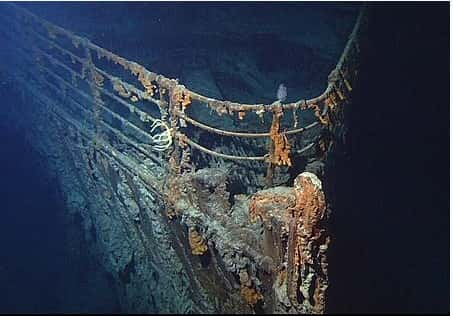James Cameron claims he 'knew' Titan sub had imploded when loud bang was detected before news went public

LOS ANGELES, CALIFORNIA: The Oscar-winning director of the ‘Titanic’ James Cameron has spoken up about the OceanGate Submersible Titan’s tragedy that caused the lives of five explorers. The director, who created his own sub previously for his visits to the Titanic wreckage site, condemned the lack of safety measures in the doomed vessel.
In an interview with ABC News, the ‘Avatar’ director highlights the similarity between the tragedy of the Titan sub and the catastrophic disaster of Titanic in 1912. Cameron pointed out that in both cases, multiple warnings “went unheeded” leading to the loss of lives. Cameron, who made a megablockbuster movie inspired by the Titanic tragedy starring Leonardo DiCaprio and Kate Winslet, could not contain his astonishment, saying, "I'm struck by the similarity of the Titanic disaster itself, where the captain was repeatedly warned about ice ahead of his ship and yet he steamed at full speed into an ice field."
‘Titanic’ director James Cameron on the ‘catastrophic implosion’ of Titan submersible: “I’m struck by the similarity of the Titanic disaster itself, where the captain was repeatedly warned about ice ahead of his ship and yet he steamed at full speed into an ice field." pic.twitter.com/vO8JkCXS5f
— ABC News (@ABC) June 22, 2023
He further continued talking about the tragedies that happen just by paying no attention to forewarnings. "For us, it’s a very similar tragedy where warnings went unheeded. To take place at the same exact site with all the diving that’s going on all around the world, I think it’s just astonishing. It’s really quite surreal." He continued echoing the sentiments of many, "People in the community were very concerned about this sub.”
He has also brought to the fore the fact that many industry experts and engineers even wrote to the OceanGate regarding the lack of safety protocol on the vessel. "A number of the top players in the deep submergence engineering community even wrote letters to the company, saying that what they were doing was too experimental to carry passengers and that it needed to be certified," he explained.
‘I thought it was a horrible idea’
In an interview with Reuters, Cameron further said that he did not like the idea of the innovations made in the Titan’s design and found the idea to be “horrible”. A co-owner of Triton Submarines, which specializes in deep-sea research and tourism, Cameron was not pleased with OceanGate Inc.’s design of making a deep-sea submersible with a composite carbon fiber and titanium hull. However, he did not speak up then thinking that someone better versed with the technology was involved in the design.
"I thought it was a horrible idea. I wish I'd spoken up, but I assumed somebody was smarter than me, you know, because I never experimented with that technology, but it just sounded bad on its face," shared Cameron in the interview. While the exact cause of the loss of the vessel is yet to be determined, Cameron thinks that the critics were right in postulating that carbon fiber and titanium hull would endanger the sub and lead to its progressive degeneration over time.
In the same interview, he also said, "We got confirmation within an hour that there had been a loud bang at the same time that the sub comms were lost. A loud bang on the hydrophone. Loss of transponder. Loss of comms. I knew what happened. The sub imploded.”
Time and again highlighting the unheeded warnings, Cameron said, "We celebrate innovation, right? But you shouldn't be using an experimental vehicle for paying passengers that aren't themselves deep ocean engineers,” before adding, "Here we are again . . . And at the same place. Now there's one wreck lying next to the other wreck for the same damn reason."

What is the probable cause?
The US Coast Guard announced on Thursday, June 22, after searching the missing submersible for days that the passengers onboard are in all likelihood dead. They blame a probable “catastrophic implosion” that happened while the vessel dove into the wreckage site of the Titanic two miles below the surface level of the Atlantic Ocean.
The US Navy also said that they found an acoustic data “consistent with an implosion or explosion in the general vicinity of where the Titan submersible was operating when communications were lost.” They passed the information to the Coast Guard who further continued its search.










